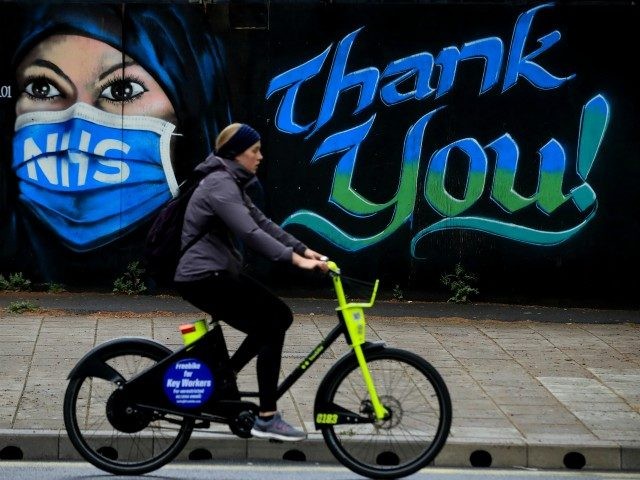A 27-year-old father of two who “begged” an NHS hospital for an MRI scan during the major lockdown earlier this year has died of cancer. His wife has blamed his death on the delay in diagnosis.
Sherwin Hall, from West Yorkshire, had first visited Leeds Teaching Hospitals NHS Trust on March 23rd with leg pains, but after subsequent visits was misdiagnosed with prostatitis and given a course of antibiotics. His pain persisted and after 13 visits to hospital in a four-week period and repeatedly “begging” for the assessment, he finally received the MRI scan on May 26th.
Doctors found a malignant tumour, nearly six inches long, in his pelvis. The scan also revealed 30 other smaller tumours in his lungs. Mr Hall passed away last week, according to Sky News.
The father of two young children said before he died that he was denied the scan because of the pandemic. He said: “I kept begging them in April and May to give me an MRI scan but no one would listen. Both my GP and my consultant told me that I couldn’t get one because scanning services were slowed down because of the coronavirus.”
His widow, LaToya Hall, said: “If Sherwin’s cancer had been found earlier it is likely he would still be here today.”
Mrs Hall has joined the campaign, Catch Up With Cancer, to force the government and NHS to prioritise getting on top of the backlog of cancer diagnoses and treatments that have built up as hospitals were effectively shut down to all but dealing with Chinese coronavirus.
“It worries me that the government and NHS leaders continue to say cancer services are back to normal; our family’s experience has been that, even now, this is simply not the case.
“Even if services were back at pre-pandemic levels that is not enough. The cancer backlog also needs to be cleared,” she said.
Coronavirus: Fewer Than Two Per Cent of NHS Hospital Trusts Busier Now Than in 2019 https://t.co/PGK3cqXv6p
— Breitbart London (@BreitbartLondon) December 1, 2020
Others have also died of cancer due to delays in treatment, including 31-year-old Kelly Smith, whose death inspired the Catch Up With Cancer campaign. Her life was “dramatically” cut short and she died of stage four bowel cancer in June. She had been diagnosed in 2017, but her chemotherapy cycle was stopped midway in March. Despite being said to be responding well to the treatment, doctors put a halt to it over concerns she might catch coronavirus.
MacMillan, a UK cancer charity, said that there was a backlog of up to 50,000 cancer patients following the first lockdown, adding that following the second shutdown that number could now be doubled. An international study reported by The Telegraph on Monday also claimed that for every four-week delay in treatment, there was a decrease in the chances of survival by between six and 13 per cent, suggesting the avoidable deaths of thousands.
A study by the Daily Mail in October revealed the effect on other patients that prioritising coronavirus could have on the long-term health of Britons, including a rise in deaths of people waiting for organ transplants, increases in cases of depression, and tens of thousands of children’s surgeries being cancelled.
One set of statistics revealed a 66 per cent drop in chemotherapy treatment in April, with referrals for early cancer diagnosis falling by up to 89 per cent across England, with the newspaper claiming that there could be a 20 per cent rise in deaths of new cancer patients in the coming years.
London GP Dr Renee Hoenderkamp condemned the government’s and NHS’s response, saying: “Effectively, thanks to the Government’s edict, the system was all but closed to cases that did not involve Covid-19. In practice, the National Health Service had been temporarily replaced by a National Covid Service.”
Stillbirths Nearly Double During UK’s First Lockdown https://t.co/c625tKd6mj
— Breitbart London (@BreitbartLondon) November 3, 2020
Others lives may have become collateral damage as authorities obsessed over coronavirus and promoted the message to “protect the NHS”.
A rise in the number of stillbirths triggered an investigation in November, with the president of the Royal College of Obstetricians and Gynaecologists (RCOG) suggesting women in later stages of pregnancy with medical concerns avoided seeking help, “not wanting to burden the NHS”.
While a preliminary report from this month suggested that NHS doctors applied blanket do not resuscitate orders on elderly care home residents, which may have caused avoidable deaths. The Care and Quality Commission (CQC) said that doctors may have ‘misinterpreted’ the “protect the NHS” message, ruling that if the elderly became sick they were not allowed to go to hospital in case they overburdened the socialised healthcare system.
‘Protect the NHS’: Doctors Applying DNRs Without Consent May Have Caused Avoidable Deaths https://t.co/EaTHl45mLh
— Breitbart London (@BreitbartLondon) December 4, 2020

COMMENTS
Please let us know if you're having issues with commenting.